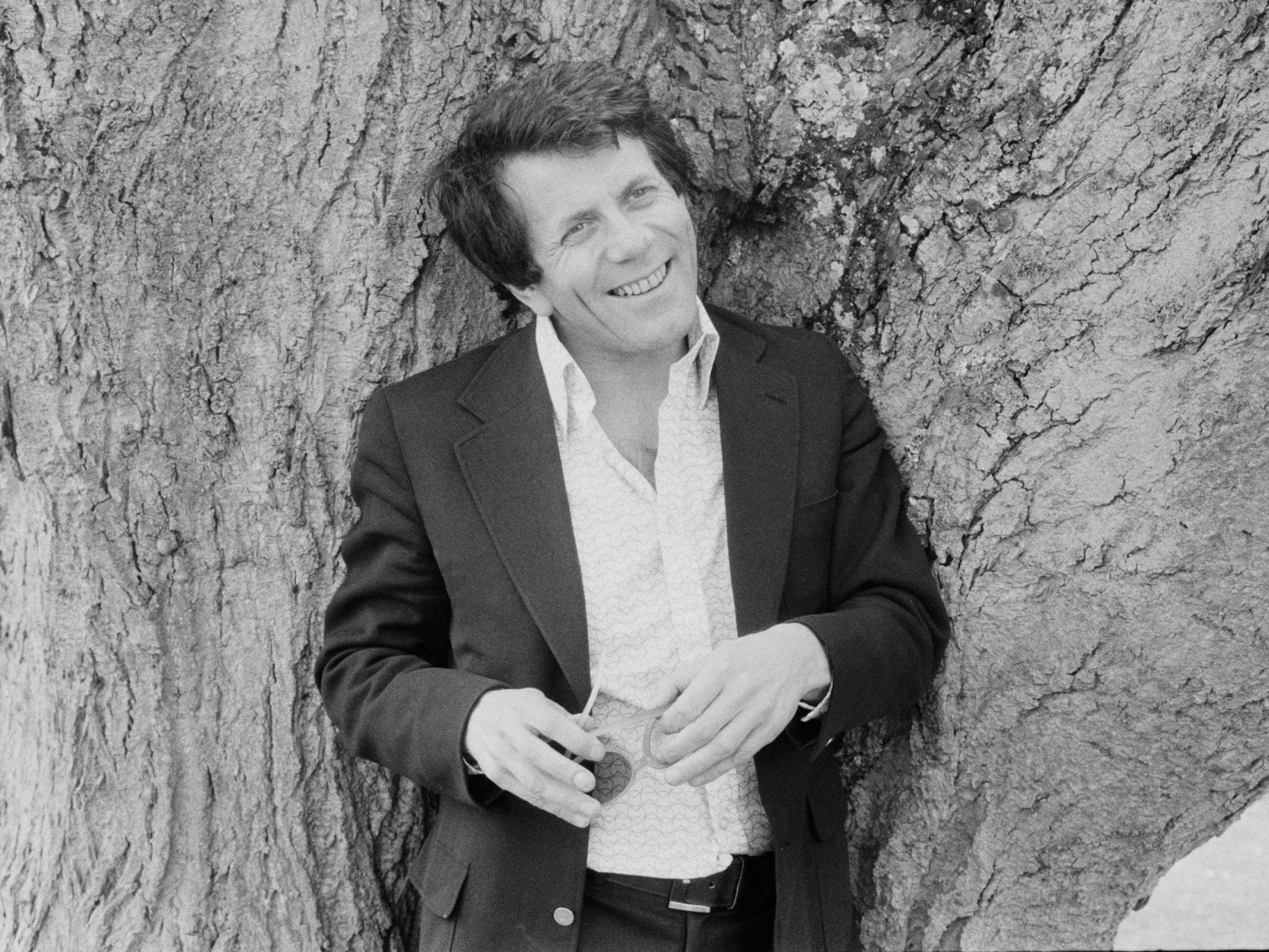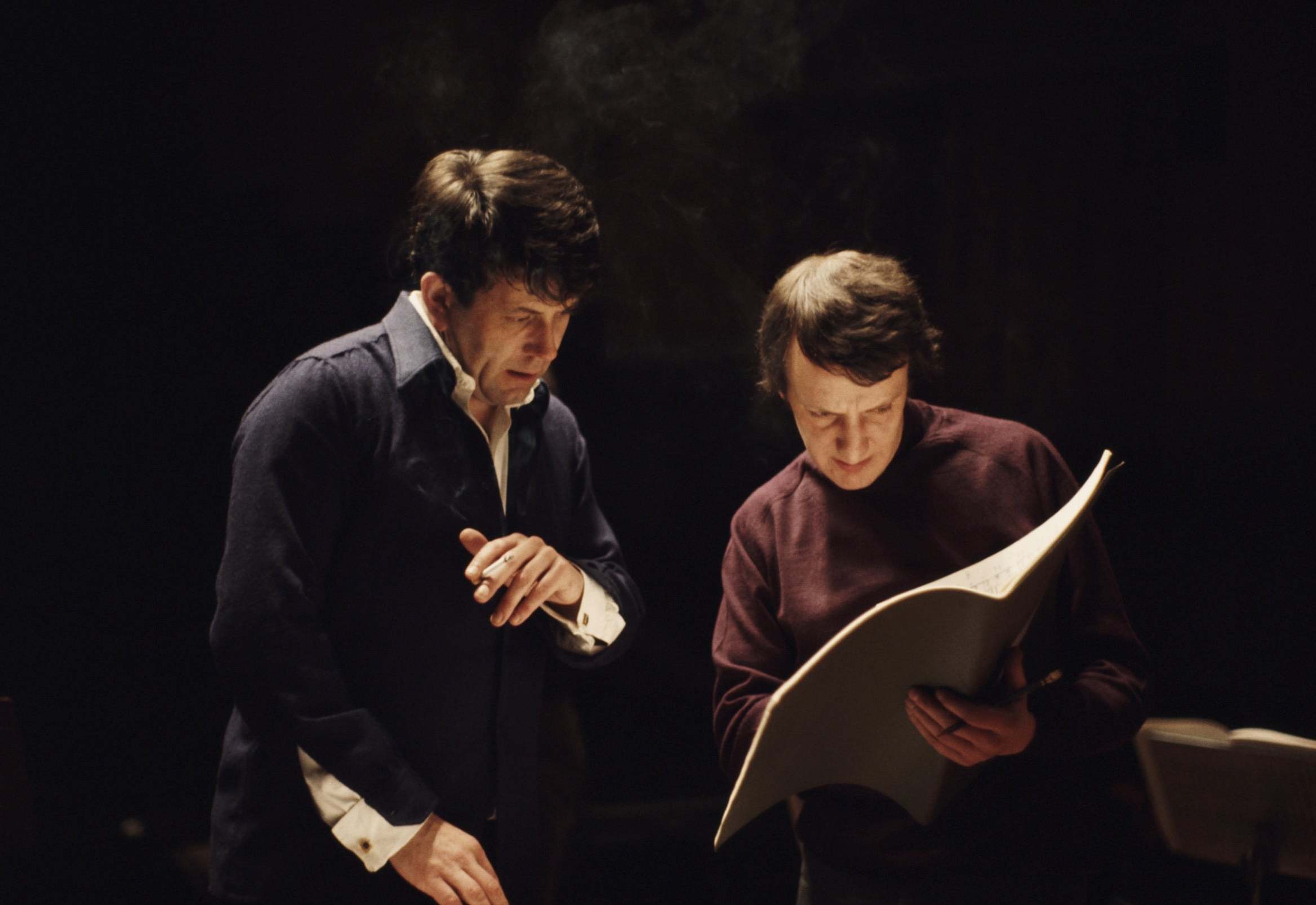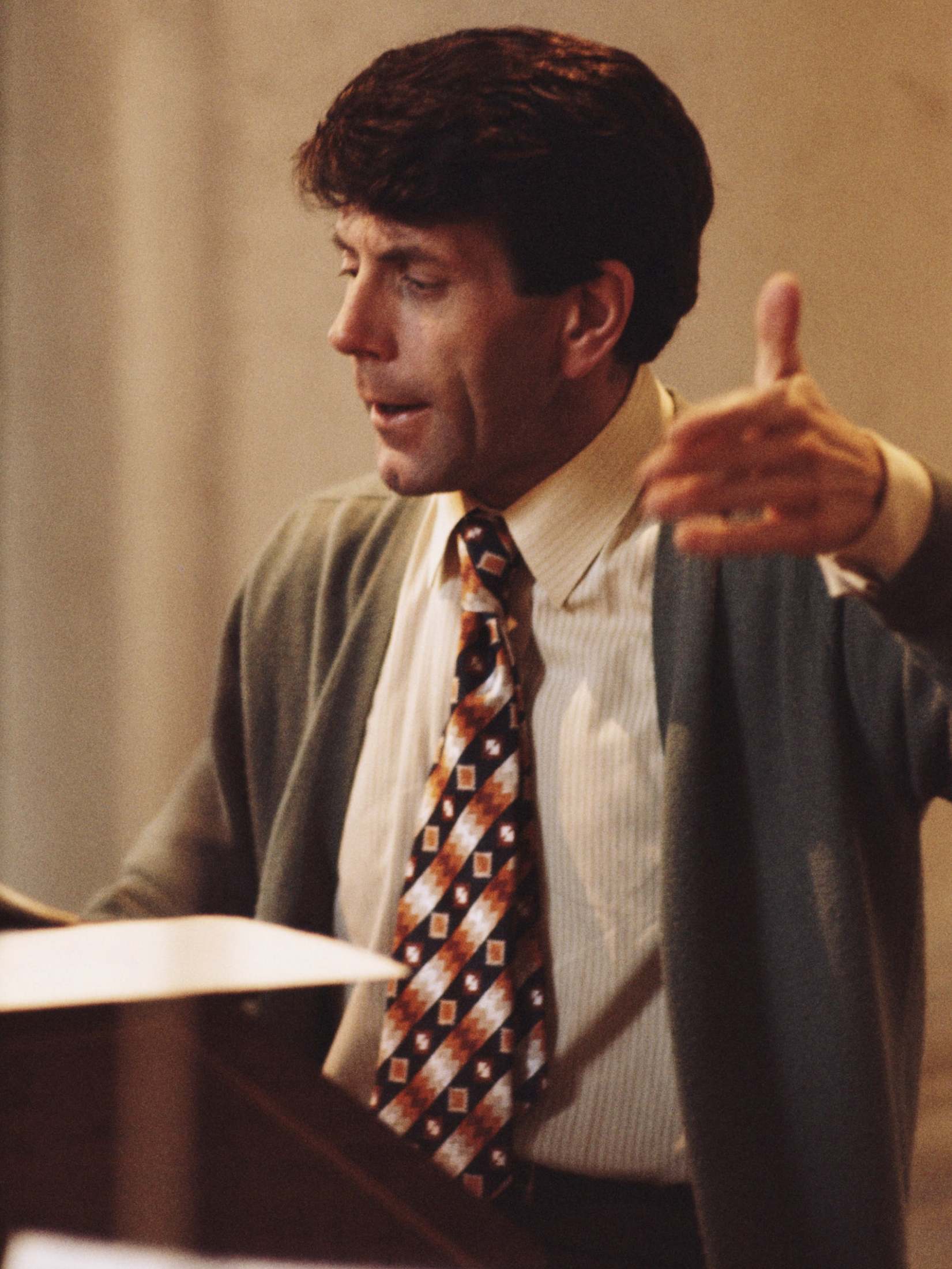Raymond Leppard: Conductor who championed Italian baroque music and revived interest in Monteverdi
A co-founder of the English Chamber Orchestra, Leppard brought obscure and forgotten works into the opera canon

Your support helps us to tell the story
From reproductive rights to climate change to Big Tech, The Independent is on the ground when the story is developing. Whether it's investigating the financials of Elon Musk's pro-Trump PAC or producing our latest documentary, 'The A Word', which shines a light on the American women fighting for reproductive rights, we know how important it is to parse out the facts from the messaging.
At such a critical moment in US history, we need reporters on the ground. Your donation allows us to keep sending journalists to speak to both sides of the story.
The Independent is trusted by Americans across the entire political spectrum. And unlike many other quality news outlets, we choose not to lock Americans out of our reporting and analysis with paywalls. We believe quality journalism should be available to everyone, paid for by those who can afford it.
Your support makes all the difference.Raymond Leppard was a pioneering British conductor, composer and harpsichordist who introduced audiences to long forgotten 17th-century operas, and whose work helped to revive interest in Italian baroque music.
Leppard, who has died aged 92, unearthed and reconstructed operas by Monteverdi, the founder of Italian opera, as well as introducing the works of Francesco Cavalli into the operatic canon. He co-founded the English Chamber Orchestra, conducted major orchestras around the world and, after moving to the US, was the long-serving music director of the Indianapolis Symphony.
Though often viewed as just a baroque specialist, Leppard saw himself as a “conservative modern”; his programmes for the English Chamber Orchestra, of which he became musical director in 1959, were interweaved with contemporary works. He was also a successful recording artist and composer for stage and screen, most notably writing the score for Peter Brook’s Lord of the Flies (1963).
In the vaults of the Marciana Library in Venice, Leppard discovered manuscripts by some of the early Italian masters of opera. These were skeletal versions, generally consisting of a vocal and bass line, which Leppard fleshed out, making them full-bodied operas with lush strings and large orchestras.
His version of Monteverdi’s L’incoronazione di Poppea was presented at Glyndebourne in 1962 to acclaim. Leppard also discovered manuscripts by Francesco Cavalli, a 17th-century composer fallen into obscurity whom Leppard described as to Monteverdi “what Schubert was to Beethoven”.
At Glyndebourne in 1967, Leppard conducted Cavalli’s L’Ormindo in a production by Peter Hall starring Janet Baker – the opera’s first known performance since 1644.
Despite his academic background, Leppard considered himself an entertainer. He said his job when reviving an old manuscript was to “make it come alive theatrically and musically”. “There’s so little left of them, originally,” he told broadcaster Bruce Duffie in 1986. “I allow anything as long as it makes it work.”
But his approach was criticised by purists who advocated period instruments and practices faithful to the era in which the work was conceived. Leppard held this growing movement in contempt. “Purity has nothing to do with music,” he said. “The moment people aspire to the condition of the Virgin Mary, they are sunk in music!”

Leppard moved to the US in 1976, tired of the debate over performance practice, and remained there for the rest of his life, becoming a US citizen in 2003. He took on the music directorship of the Indianapolis Symphony Orchestra in 1987, having previously rejected the role, dismissing Indianapolis as “death on wheels”. But he was won over by the orchestra – and by the American midwest – and stayed in post until 2001.
During that time the quality and stature of the orchestra grew. “Leppard has steered the orchestra to new heights,” wrote Duncan Hadfield for The Independent in 1997. “A tight and highly professional unit, Indianapolis customarily produces an ample and rugged sound, held firmly together by a pristine ensemble.”
Born in London in 1927, Leppard showed an interest in music at an early age. He took up the piano aged five, and when his family moved to Bath in 1938, he studied piano, viola and singing at the City of Bath boys’ school.
He attended Trinity College, Cambridge, deferring entry until 1948 to complete national service as an RAF radar operator. At Trinity he studied viola and harpsichord and began conducting. In 1953 he made his professional debut conducting the Leppard Chamber Orchestra at Wigmore Hall in London.
After moving to the capital, Leppard’s first job was as musical director of a stage production of Alice Through the Looking Glass (1954), starring Margaret Rutherford. He was soon hired by Peter Hall, the founder of the Royal Shakespeare Company, to compose for productions at Stratford-Upon-Avon.

Leppard began at Glyndebourne as an assistant conductor and harpsichordist in 1954. In 1958 the composer Benjamin Britten invited him to present Monteverdi’s Il ballo delle ingrate – his first foray into 17th-century Italian opera – at that year’s Aldeburgh Festival.
At Cambridge Leppard developed his fascination with baroque music. He returned there as a fellow and lecturer from 1958-68, a role that allowed him to develop his interest in opera’s roots. For Glyndebourne in the 1960s Leppard conducted his editions of operas by Monteverdi and Cavalli, which established the composers’ works in the operatic canon.
Leppard made his US bow in 1969 with the New York Philharmonic and the Westminster Choir and in 1973 he was made principal conductor of the BBC Northern Symphony Orchestra. Despite making his home in Indianapolis, where he died, Leppard championed British composers and supported the British musical profession. In 1994 he auctioned off a rare 18th-century book of Italian cantatas and arias, donating the proceeds to the Musicians Benevolent Fund. He was awarded a CBE in 2003.
A highly serious and thoughtful musician, Leppard once described conducting as a form of “musical evangelism”, saying: “I can’t perform a piece unless I sense vitality in it and I rehearse an orchestra in order to reveal as much of that vitality as I can. And in the performance I would hope to transmit that vitality, that energy, that image of life – whatever it is.”
He is survived by his husband, John Bloom.
Raymond John Leppard, conductor, born 11 August 1927, died 22 October 2019
Join our commenting forum
Join thought-provoking conversations, follow other Independent readers and see their replies
Comments